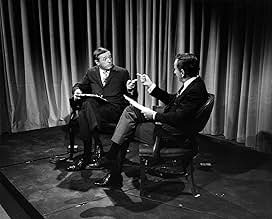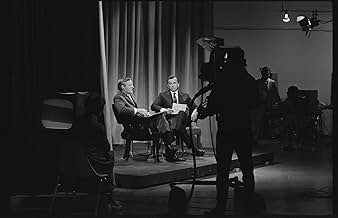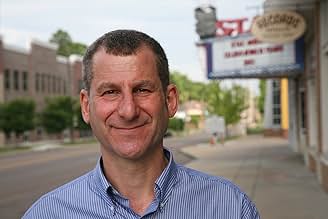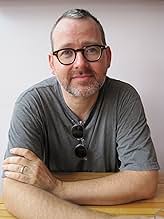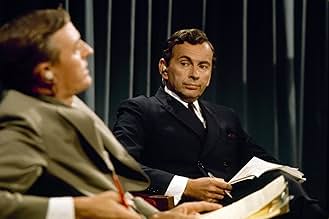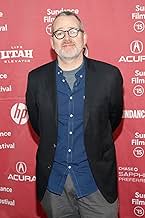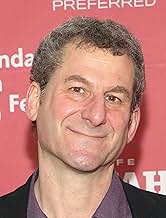NOTE IMDb
7,6/10
6,6 k
MA NOTE
Ajouter une intrigue dans votre langueA documentary on the series of televised debates in 1968 between liberal Gore Vidal and conservative William F. Buckley.A documentary on the series of televised debates in 1968 between liberal Gore Vidal and conservative William F. Buckley.A documentary on the series of televised debates in 1968 between liberal Gore Vidal and conservative William F. Buckley.
- Réalisation
- Scénario
- Casting principal
- Récompenses
- 6 victoires et 27 nominations au total
Gore Vidal
- Self - Debater
- (images d'archives)
William F. Buckley
- Self - Debater
- (images d'archives)
Noam Chomsky
- Self
- (images d'archives)
Patricia Buckley
- Self - Buckley's Wife
- (images d'archives)
Sam Donaldson
- Self - Correspondent, ABC News
- (images d'archives)
Howard K. Smith
- Self - Anchor, ABC News
- (images d'archives)
Avis à la une
In 1968, eighty percent of American television viewers watched the national presidential nominating conventions. As we watched the Chicago Democratic Convention, we saw what a federal commission later called a "police riot"–a horrific skull-cracking rampage. The decade was a time of economic boom, civil rights struggle, assassinations, riots, disaffected youth, rock 'n' roll, changing sexual mores, escalating protests against an escalating yet undeclared war (the Democratic Party's finger prints were on the war more than the Republicans—hence the demonstrations in Chicago), new welfare programs, and dazzling technological changes. (The national conventions were broadcast, for the first time, entirely in color in 1968.) Even though I watched the conventions, I didn't watch much of ABC, which only covered the conventions during prime time, while NBC and CBS covered the conventions from gavel-to-gavel—unheard of today except maybe on C-SPAN. So I missed seeing the subject of this documentary, the epic ten-round debate between Gore Vidal and William F. Buckley, Jr., but I sure heard about it. After the round in which Vidal called Buckley a "crypto-Nazi" and Buckley called Vidal a "queer" and added "I'll sock you in the god-damned face," it was water-cooler conversation everywhere in America the next day. Even those like me who had not seen it, understood how shocking it was. According to this documentary, the network suits turned to each other after it happened and asked, "Can they say that on television?" And someone told them, "They just did—live." Maybe if ABC had not been the lowest-rated commercial network, it might not have been so eager to have Vidal and Buckley comment/debate at the conventions. That, of course, assumes that ABC realized that they would not do much commentary and that there would be no rules in their debate. The two men had a great deal in common in terms of background and intellect (both were masterful word-smiths), but they hated each other politically and personally with a burning passion that makes the title of this film so apt.
Their "debate" got personal fast as they ripped into each other mercilessly. It was only surprising that they lasted so long before the sharpest knives came out. At the heart was the battle between the liberal and conservative world views that each man represented. Vidal was an outspoken advocate of libertine-ism and central planning, the almost contradictory shibboleths of modern liberalism, and also a successful writer who wrote a number of good novels, plays and screenplays, but his most recent and provocative novel, in 1968, was "Myra Breckinridge," a satirical romp about trans-sexuality (very progressive, you might think) and also a celebration of homosexual rape (Yikes! You might think), but it was a different time, and both sexual liberation and rape were lumped together, according to Vidal's champions, as signs of forward thinking and, according to critics, as signs of moral decay. Buckley was the editor of "National Review", a conservative magazine that still thrives despite his passing. Both men were scions of social upstarts who became successful, Buckley's family in oil and Vidal's family in politics. Both had good educations, although, Vidal had not gone to college. They both spoke with patrician accents that, as one of the film's commentators, linguist John McWhorter, opines, would seem pompous and uncaring to listeners today. (Indeed, Kelsey Grammar, of "Frazier" fame, voices the writings of Buckley and John Lithgow, of "Third Rock from the Sun", voices those of Vidal in this film.) Vidal won the "debate" based purely on the fact that, though each man strove to get under the other's skin, it was Buckley who finally lost his cool. What got to him was the odious conceit that conservatives may be linked to fascism. Buckley had heard this slur his whole career, and was visibly infuriated by it, but pushing that button would have been a lower trick than it was if Vidal had not genuinely believed that there was truth in it. (The persistence of this myth explains the peculiar surprise of one of Buckley's liberal biographers when he learned that Buckley, otherwise unsurprisingly, had once fired a Nazi that he found to be part of his magazine's sales force.) Buckley was ashamed of his outburst in the debate for the rest of his life. Vidal gloated over it for the rest of his. I wonder if one is sadder than the other.
The filmmakers, Robert Gordon and Morgan Neville, make some attempt to be fair to both sides but are, perhaps, unfair to both and to history as well. For example, they present a recounting of Vidal's frequent viewing of the debate tapes in his old age while showing us a scene from the movie "Sunset Boulevard" (about a forgotten movie star who pathetically watches herself in old movies night after night). If there is a flaw in the conclusion drawn for us by the film—that the vitriol of the Buckley-Vidal debate was not only a harbinger of, but may even have caused today's cable news and internet cat-fighting—it might be that the film overly sentimentalizes the homogeneous, middle-of-the-road political viewpoint shared by most network newsreaders and commentators during the sixties. This artificial sameness presided over and callously ignored a turbulent, ongoing cultural and political split in the country as if ignoring it—or at best reporting only the ripples on the surface that could not be ignored—would make it go away. For all any of us knew, we might have blown off some of our more destructive steam if there had been alternative media back then. The confrontation between Vidal and Buckley on national television in 1968 was set against what was going on in the streets at that time. They were expressing the frustrations of adherents of both of their ideologies, frustrations that were just under the surface but not being articulated on the nightly news.
Their "debate" got personal fast as they ripped into each other mercilessly. It was only surprising that they lasted so long before the sharpest knives came out. At the heart was the battle between the liberal and conservative world views that each man represented. Vidal was an outspoken advocate of libertine-ism and central planning, the almost contradictory shibboleths of modern liberalism, and also a successful writer who wrote a number of good novels, plays and screenplays, but his most recent and provocative novel, in 1968, was "Myra Breckinridge," a satirical romp about trans-sexuality (very progressive, you might think) and also a celebration of homosexual rape (Yikes! You might think), but it was a different time, and both sexual liberation and rape were lumped together, according to Vidal's champions, as signs of forward thinking and, according to critics, as signs of moral decay. Buckley was the editor of "National Review", a conservative magazine that still thrives despite his passing. Both men were scions of social upstarts who became successful, Buckley's family in oil and Vidal's family in politics. Both had good educations, although, Vidal had not gone to college. They both spoke with patrician accents that, as one of the film's commentators, linguist John McWhorter, opines, would seem pompous and uncaring to listeners today. (Indeed, Kelsey Grammar, of "Frazier" fame, voices the writings of Buckley and John Lithgow, of "Third Rock from the Sun", voices those of Vidal in this film.) Vidal won the "debate" based purely on the fact that, though each man strove to get under the other's skin, it was Buckley who finally lost his cool. What got to him was the odious conceit that conservatives may be linked to fascism. Buckley had heard this slur his whole career, and was visibly infuriated by it, but pushing that button would have been a lower trick than it was if Vidal had not genuinely believed that there was truth in it. (The persistence of this myth explains the peculiar surprise of one of Buckley's liberal biographers when he learned that Buckley, otherwise unsurprisingly, had once fired a Nazi that he found to be part of his magazine's sales force.) Buckley was ashamed of his outburst in the debate for the rest of his life. Vidal gloated over it for the rest of his. I wonder if one is sadder than the other.
The filmmakers, Robert Gordon and Morgan Neville, make some attempt to be fair to both sides but are, perhaps, unfair to both and to history as well. For example, they present a recounting of Vidal's frequent viewing of the debate tapes in his old age while showing us a scene from the movie "Sunset Boulevard" (about a forgotten movie star who pathetically watches herself in old movies night after night). If there is a flaw in the conclusion drawn for us by the film—that the vitriol of the Buckley-Vidal debate was not only a harbinger of, but may even have caused today's cable news and internet cat-fighting—it might be that the film overly sentimentalizes the homogeneous, middle-of-the-road political viewpoint shared by most network newsreaders and commentators during the sixties. This artificial sameness presided over and callously ignored a turbulent, ongoing cultural and political split in the country as if ignoring it—or at best reporting only the ripples on the surface that could not be ignored—would make it go away. For all any of us knew, we might have blown off some of our more destructive steam if there had been alternative media back then. The confrontation between Vidal and Buckley on national television in 1968 was set against what was going on in the streets at that time. They were expressing the frustrations of adherents of both of their ideologies, frustrations that were just under the surface but not being articulated on the nightly news.
Gavel-to-gavel coverage of the Republican and Democratic national conventions was still being offered by CBS and NBC in 1968, but ABC, lacking their resources, limited their coverage to a few hours in the evening and highlighted it with a ten-night debate between conservative author and commentator William F. Buckley Jr. and flamboyant liberal novelist and playwright Gore Vidal. These debates are chronicled in the powerful documentary Best of Enemies directed by Robert Gordon ("Johnny Cash's America") and Morgan Neville ("Twenty Feet From Stardom").
In addition to fully restored original broadcast footage, the film includes commentaries from people who knew Buckley and Vidal such as former TV talk show host Dick Cavett, journalist Frank Rich, authors Christopher Hitchens and Andrew Sullivan, Buckley biographer Sam Tanenhaus, Vidal's last magazine editor, Matt Tyrnauer among others, while actors Kelsey Grammar and John Lithgow read passages from the writings of both men.
Though both men had previously run for public office (Vidal for Congress, Buckley for Mayor of New York), their forte was not politics but writing. Buckley was the founder and editor of the influential conservative magazine The National Review, and Vidal was a controversial novelist and playwright whose sexually liberated views were in evidence in his novels "The City and the Pillar" and "Myra Breckinridge." Both men spoke in the accents of Eastern elites, what Neil Buckley, Bill's surviving brother, describes as "patrician, languid accents," yet both were erudite with acid tongues.
To say that Buckley and Vidal did not get along is like saying Bobby Kennedy and James Hoffa were not the best of friends. Vidal knew that Buckley had supported using nuclear weapons against North Vietnam and China, and called him "a bloodthirsty neurotic," while Buckley retorted, "We all know that your tendency is to be feline." The Democratic Convention was held in Chicago where protests against the Vietnam War and the subsequent police overreaction threatened to derail the nominating process, creating a highly-charged atmosphere for the debates that only enhanced the acrimony.
One of the highlights occurred in the ninth of ten debates where the debaters clashed over the extent of the police response against the demonstrators and both stepped out of their well-calculated cool, intellectual personas. The discussion began with the revelation that the police had removed a Viet Cong flag from the demonstration. While Vidal defended the right of the demonstrators to state their political views, Buckley noted that during World War II, people were free to ostracize pro-Nazi spokesman even though they were free to speak their views. Vidal responded by saying that "the only sort of crypto-Nazi I can think of is yourself." Though the moderator Howard K. Smith warned both men against name calling, a red-faced Buckley, his hands trembling, shouted, "Now listen, you queer, stop calling me a crypto-Nazi or I'll sock you in your goddamn face, and you'll stay plastered." It was a moment that Buckley regretted, though the feud continued with competing articles in Esquire Magazine and subsequent law suits. Best of Enemies is provocative and terrific entertainment but while the edited debates are pure theater, full of witty banter and relentless thrusts and parries, they are less than illuminating as a contribution to the troubling issues of the time and include no discussion of the most important issue of the day, the Vietnam War.
Although issues such as economic inequality, foreign involvements, and issues of morality and culture were discussed, the debates were not a conflict over positions on issues as much as they were a battle between two individuals convinced the other was a threat to the health and well-being of the country.
Many commentators in the film are full of nostalgia for the day when intellectuals were seen on television and point to today's cable news pundits screaming at each other (rather than the corporatization of the media and the over-dependence on ratings) as evidence of the decline of American television, but if the Buckley-Vidal debates are an example of the intellectual vitality of television in the sixties, I think I'd rather stick with Rachel Maddow.
In addition to fully restored original broadcast footage, the film includes commentaries from people who knew Buckley and Vidal such as former TV talk show host Dick Cavett, journalist Frank Rich, authors Christopher Hitchens and Andrew Sullivan, Buckley biographer Sam Tanenhaus, Vidal's last magazine editor, Matt Tyrnauer among others, while actors Kelsey Grammar and John Lithgow read passages from the writings of both men.
Though both men had previously run for public office (Vidal for Congress, Buckley for Mayor of New York), their forte was not politics but writing. Buckley was the founder and editor of the influential conservative magazine The National Review, and Vidal was a controversial novelist and playwright whose sexually liberated views were in evidence in his novels "The City and the Pillar" and "Myra Breckinridge." Both men spoke in the accents of Eastern elites, what Neil Buckley, Bill's surviving brother, describes as "patrician, languid accents," yet both were erudite with acid tongues.
To say that Buckley and Vidal did not get along is like saying Bobby Kennedy and James Hoffa were not the best of friends. Vidal knew that Buckley had supported using nuclear weapons against North Vietnam and China, and called him "a bloodthirsty neurotic," while Buckley retorted, "We all know that your tendency is to be feline." The Democratic Convention was held in Chicago where protests against the Vietnam War and the subsequent police overreaction threatened to derail the nominating process, creating a highly-charged atmosphere for the debates that only enhanced the acrimony.
One of the highlights occurred in the ninth of ten debates where the debaters clashed over the extent of the police response against the demonstrators and both stepped out of their well-calculated cool, intellectual personas. The discussion began with the revelation that the police had removed a Viet Cong flag from the demonstration. While Vidal defended the right of the demonstrators to state their political views, Buckley noted that during World War II, people were free to ostracize pro-Nazi spokesman even though they were free to speak their views. Vidal responded by saying that "the only sort of crypto-Nazi I can think of is yourself." Though the moderator Howard K. Smith warned both men against name calling, a red-faced Buckley, his hands trembling, shouted, "Now listen, you queer, stop calling me a crypto-Nazi or I'll sock you in your goddamn face, and you'll stay plastered." It was a moment that Buckley regretted, though the feud continued with competing articles in Esquire Magazine and subsequent law suits. Best of Enemies is provocative and terrific entertainment but while the edited debates are pure theater, full of witty banter and relentless thrusts and parries, they are less than illuminating as a contribution to the troubling issues of the time and include no discussion of the most important issue of the day, the Vietnam War.
Although issues such as economic inequality, foreign involvements, and issues of morality and culture were discussed, the debates were not a conflict over positions on issues as much as they were a battle between two individuals convinced the other was a threat to the health and well-being of the country.
Many commentators in the film are full of nostalgia for the day when intellectuals were seen on television and point to today's cable news pundits screaming at each other (rather than the corporatization of the media and the over-dependence on ratings) as evidence of the decline of American television, but if the Buckley-Vidal debates are an example of the intellectual vitality of television in the sixties, I think I'd rather stick with Rachel Maddow.
Best of Enemies is a fascinating documentary film about a series of nationally televised debates in 1968 between two public intellectuals, the liberal Gore Vidal and the conservative William F. Buckley Jr. If that doesn't sound very interesting you couldn't be more wrong. This is a film about two men who absolutely hated each other. Two extremely clever men who fought each other live on television by debating with each that eventually led to personal insults being thrown at each other and it's mesmerising viewing. I have to admit I had never heard of these men before and that's probably because these debates happened a couple of months before I was born but I do know now and I feel much better off for it.
"Best of Enemies" (2015 release; 88 min.) is a documentary about the infamous 10 televised debates that took place during the 1968 Republican and Democratic Presidential Conventions (in Miami and Chicago, respectively), between conservative William Buckley Jr. and liberal Gore Vidal. As the documentary opens, Vidal is commentating about old pictures hanging up in his house and one of them is showing Buckley and Vidal at one of those debates. We then get some background as to who these 2 guys are, and why ABC veered away to bring the "unconventional Convention" coverage. And then we get to the first debate... To tell you more would spoil your viewing experience, you'll just have to see for yourself how it all plays out.
Couple of comments: this documentary is co-directed by Morgan "20 Feet From Stardom" Neville and Robert Gordon, who is affiliated with the Heritage Foundation, a conservative think-tank. If you think that means the documentary is kinder to Buckley that to Vidal, think again. The two men are pitted against each other, and vehemently disdain each other, even before these debates, and much more so afterwards. "It was a confrontation of life styles", as someone comments. Yes, it was, but as it turns out, these debates had another unexpected consequence: ABC's ratings went through the roof, and the other mainstream networks quickly realized they had to have their own versions of these "point-counterpoint" programs. In other words, the Buckley-Vidal debates set into motion what would eventually become the Fox's and MSNBC's news channels. Apart from the historical legacy created by these debates, the documentary also examines the long shadows cast be the debates over the personal lives of both Vidal and (even more so) Buckley. If you have any interest in politics and/or in TV history, you will not want to miss this documentary. It makes for completing viewing, period.
"Best of Enemies" made quite a splash at the Sundance film festival earlier this year. The movie's been out for months and I didn't think it would reach theaters here in Cincinnati, but then out of the blue t showed up this weekend at my local art-house theater here. I figured this would not be playing very long and went to see it right away, The matinée screening where I saw this at turned into a private screening, as in: I literally was the only person in the theater. A shame, as this is a riveting documentary. If you get the chance to see this, be it in the theater, on VOD or eventually on DVD/Blu-ray, do not mist it! "BEst of Enemies" is HIGHLY RECOMMENDED!
Couple of comments: this documentary is co-directed by Morgan "20 Feet From Stardom" Neville and Robert Gordon, who is affiliated with the Heritage Foundation, a conservative think-tank. If you think that means the documentary is kinder to Buckley that to Vidal, think again. The two men are pitted against each other, and vehemently disdain each other, even before these debates, and much more so afterwards. "It was a confrontation of life styles", as someone comments. Yes, it was, but as it turns out, these debates had another unexpected consequence: ABC's ratings went through the roof, and the other mainstream networks quickly realized they had to have their own versions of these "point-counterpoint" programs. In other words, the Buckley-Vidal debates set into motion what would eventually become the Fox's and MSNBC's news channels. Apart from the historical legacy created by these debates, the documentary also examines the long shadows cast be the debates over the personal lives of both Vidal and (even more so) Buckley. If you have any interest in politics and/or in TV history, you will not want to miss this documentary. It makes for completing viewing, period.
"Best of Enemies" made quite a splash at the Sundance film festival earlier this year. The movie's been out for months and I didn't think it would reach theaters here in Cincinnati, but then out of the blue t showed up this weekend at my local art-house theater here. I figured this would not be playing very long and went to see it right away, The matinée screening where I saw this at turned into a private screening, as in: I literally was the only person in the theater. A shame, as this is a riveting documentary. If you get the chance to see this, be it in the theater, on VOD or eventually on DVD/Blu-ray, do not mist it! "BEst of Enemies" is HIGHLY RECOMMENDED!
A well-constructed must-see documentary for anyone who is the least bit interested in the politics of journalism. Don't worry that you won't recall/aren't aware of the background. The filmmakers do an excellent job of setting the stage, and an even more impressive job of avoiding the actual political issues in order to focus on the medium. If you want to know how we got where we are, start at the beginning. This is the genesis of punditry and personality-driven journalism. This is not to say that this little slice of evolution is necessarily bad. As the film points out, prior to 1968 the presentation of news was quite static, with little, if any, chance for anything out of the mainstream to make it out of the studio. Now the genie has been loosed from the bottle, and he has truly been feeling his oats for the past several years. It's up to us to rein him in, give him focus, and pray that we can find some common ground before the growing political mitosis reaches the point of no return.
Le saviez-vous
- AnecdotesThe film-makers shot an interview with Gore Vidal, but ultimately decided not to use it, so he only appears in archive footage.
- Citations
Richard Wald: ABC was the third of the three networks. It would've been fourth, but there were only three.
- Crédits fousThere is a short scene after the credits showing footage of an interview with Buckley.
- ConnexionsEdited into Independent Lens: Best of Enemies (2016)
Meilleurs choix
Connectez-vous pour évaluer et suivre la liste de favoris afin de recevoir des recommandations personnalisées
- How long is Best of Enemies: Buckley vs. Vidal?Alimenté par Alexa
Détails
- Date de sortie
- Pays d’origine
- Site officiel
- Langue
- Aussi connu sous le nom de
- Best of Enemies: Buckley vs. Vidal
- Sociétés de production
- Voir plus de crédits d'entreprise sur IMDbPro
Box-office
- Budget
- 1 000 000 $US (estimé)
- Montant brut aux États-Unis et au Canada
- 892 802 $US
- Week-end de sortie aux États-Unis et au Canada
- 50 378 $US
- 2 août 2015
- Montant brut mondial
- 892 802 $US
- Durée1 heure 27 minutes
- Couleur
Contribuer à cette page
Suggérer une modification ou ajouter du contenu manquant

Lacune principale
By what name was Best of Enemies (2015) officially released in India in English?
Répondre

